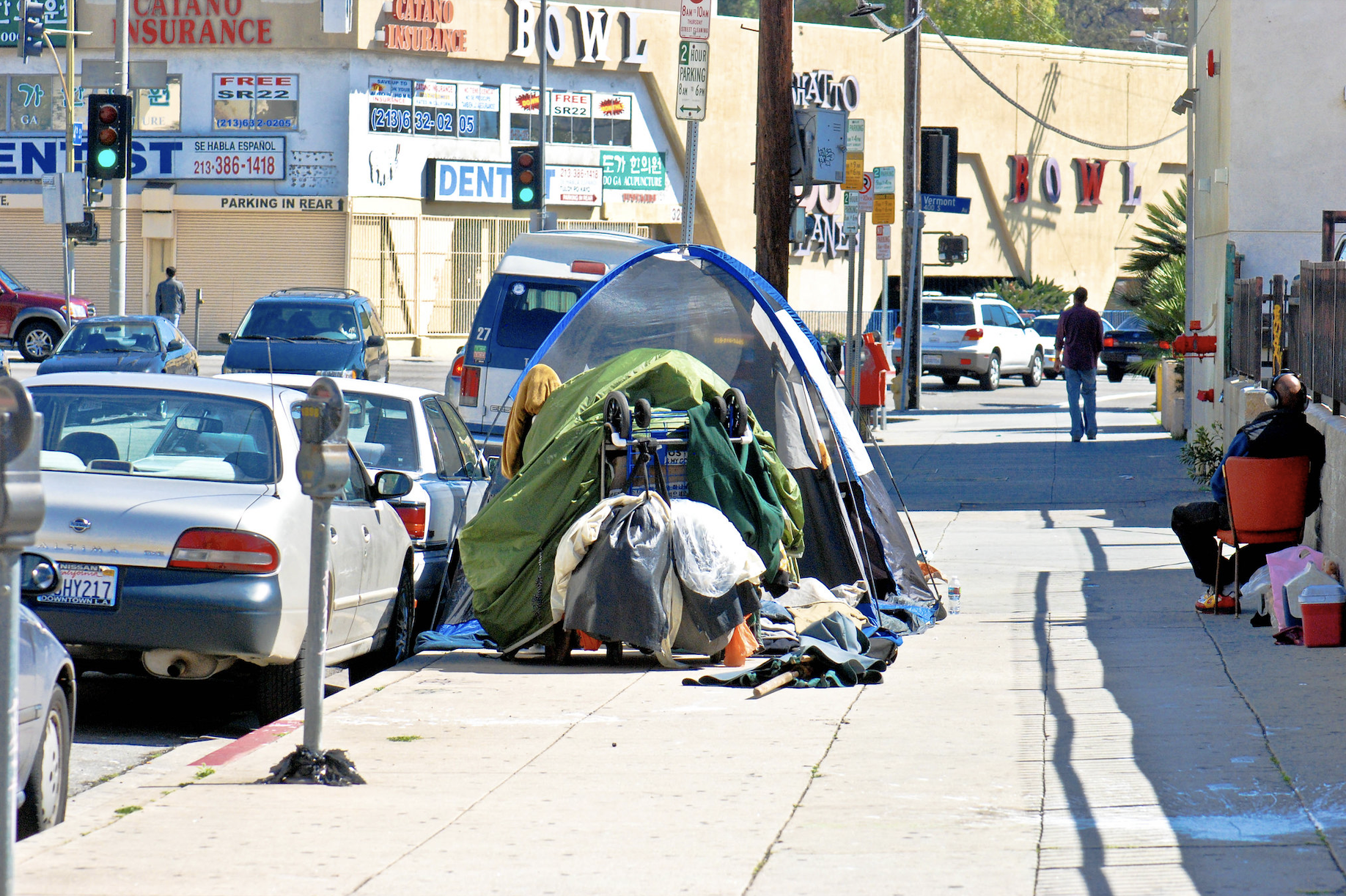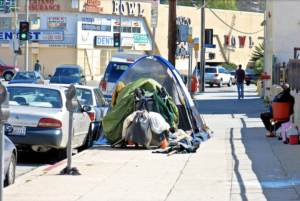
LOS ANGELES — A majority of Los Angeles County residents expect the region’s homelessness crisis to get worse over the next year rather than better, according to a survey conducted by the Thomas and Dorothy Leavey Center for the Study of Los Angeles at Loyola Marymount University.
The survey results, released today, also show a growing number of residents support clearing out homeless encampments without regard for whether shelter beds are available: 45 percent of respondents took this position in 2022, up from 39 percent of those surveyed last year.
The survey found steady support for building short-term shelters rather than long-term housing, to help people experiencing homelessness “get off the streets” as quickly as possible. This year, 60 percent of respondents preferred the short-term option, up from 58 percent in 2021.
“It’s no surprise that the homelessness crisis facing our region is a major issue for Angelenos,” said Brianne Gilbert, managing director of the center. “Our survey shows an increasing weariness among residents, who have watched the situation stagnate or worsen in recent years. Angelenos have a growing desire to see local leaders take steps that will produce an impact quickly—not years down the line.”
The information is from StudyLA’s ninth annual general social survey of Los Angeles residents. It was conducted by phone, online, and in-person, in English, Spanish, Mandarin and Korean, from Jan. 4 to Feb. 10. The survey reached 2,002 respondents and has a margin of error of +/- 3.0 percent.
Researchers also found small but noticeable differences of opinion based on age, ethnicity, and home ownership status. Large majorities of Black (72 percent) and Latino (66 percent) residents rated the level of homelessness in their area as poor. Respondents in the middle age bracket (30 to 64 years old) were most likely to support clearing out homeless encampments without available shelter beds.
“Black and Latina/o residents were the most likely to say that homelessness is ‘poor’ in their area and they are also the most likely to think homelessness will get worse in the next year,” said Fernando Guerra, director of the center and professor of Political Science and Chicana/o and Latina/o studies. “We need to start moving the needle on this issue and and help the communities most impacted by issues of homelessness.”
The full report is available online here.
Downloadable High-Resolution Images




